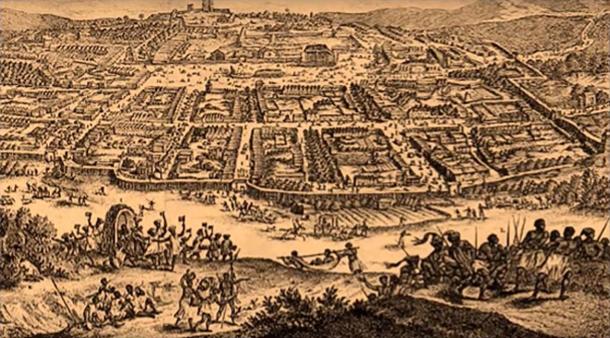
Governance
The empire was ruled by a king who was assisted by a council of ministers. In about 1067, the king of Ghana was Tunka Manin. His immediate successor was Basi who mounted the throne at the ripe age of 85 who was said to have led “a praise worthy life of account of his love of justice and friendship with the Muslims.”
Ancient Ghana comprised metropolitan Ghana and provincial Ghana made of states, which had been conquered and annexed. The government of the provinces was in the hands of the kings of the conquered states but for security, the son of each vassal king, had to send to the court of the Ghana king.
The king lived in a palace which consisted of a number of domed dwellings surrounded by an enclosure like a city wall. When he sat in state, he adorned himself according to the Arabic writers “like a woman, wearing necklaces round his neck and bracelets on his forearms and put on a high cap decorated with gold wrapped in a turban of fine cloth”.
The observation continued that “behind the king stand ten pages holding shields and swords decorated with gold.” The audience was also announced by the beating of a drum which was covered with skin.









